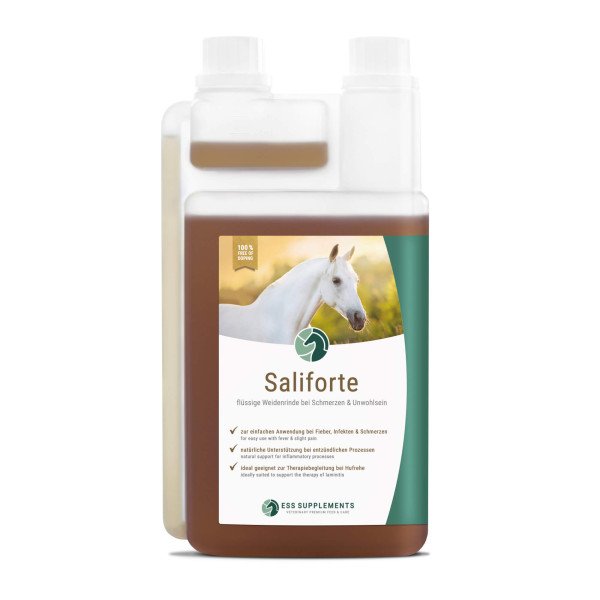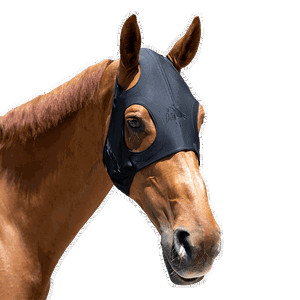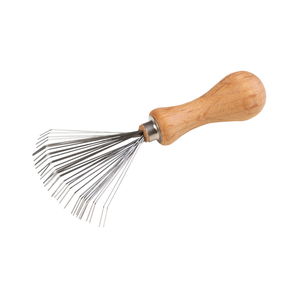To harmonize perfectly when riding, not only rider and rider should be top equipped. Your four-legged friend also needs the best possible horse accessories, the ideal equipment for well-being, health and optimal performance.
Product description
ESS Supplements Supplementary Food Saliforte
- helps with inflammatory processes, pain or fever
- with the combination of willow bark with vitamin C, which is converted in the body to salicylic acid, it has an analgesic and anti-inflammatory effect
- it also has a positive effect on diseases of the locomotor system, such as laminitis
- the well-being of the horse as well as its performance can be increased
- Saliforte can be administered preventively as well as in acute cases
- in case of general indisposition
- to accompany the therapy of laminitis
- to inhibit blood clotting
- in case of slight pain
- in case of slight fever
- for injuries & diseases
- for immunodeficiency
- in case of mating problems
Note: This product is 100 % doping-free (tested according to FEI / ADMR control guidelines, as of June 2023). If the feeding recommendation cannot be reliably adhered to, feeding should be stopped 48 hours before a competition to be on the safe side. The anti-doping and medication control rules must continue to be observed.
Composition
- potassium chloride
- sodium chloride
Analytical components
- crude protein 0.00 %
- crude fat 0.00 %
- crude ash 1.20 %
- crude fiber 0.00 %
- sodium 0.45 %
- moisture 98.00 %
Additives per liter
- Nutritional additives: Vitamin C (3a300) 30.000 mg
- Sensory additives: flavoring mixture (willow bark) 800.000 mg
- Technological additives: Sodium propionate (1k281) 2.000 mg
Feeding recommendation
- Large horses: 30 - 40 ml per day (contains up to 33 portions / bottle)
- Riding ponies: 20 - 25 ml per day (contains up to 50 portions / bottle)
- in case of acute deer attacks the ration can be given 2x a day - feeding to pregnant mares should be done in consultation with a veterinarian
- supplementary feeds are no substitute for a varied feeding according to the needs and a performance-oriented training of the horse
- the recommended (daily) dose should not be exceeded in the long term without consulting a treating veterinarian
























